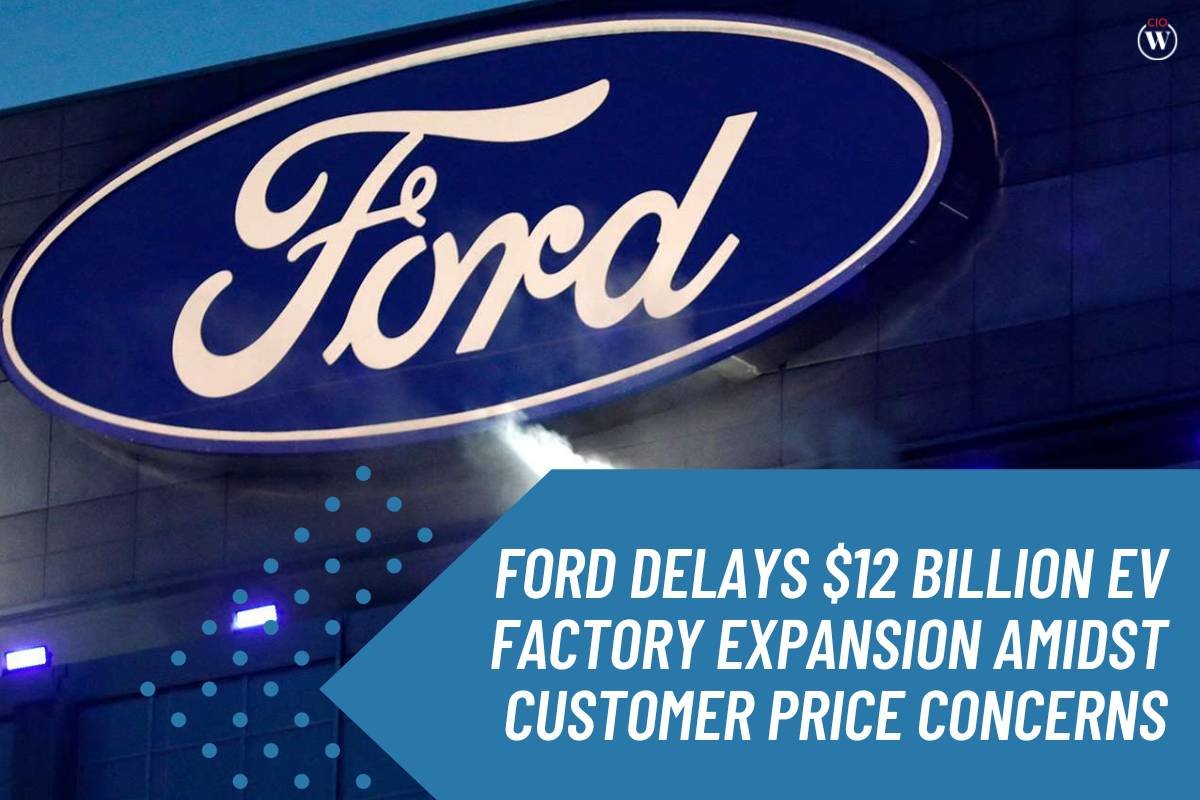In a significant development in the electric vehicle (EV) industry, Ford has announced a postponement of its $12 billion investment in EV factory construction. This decision includes the delay of a planned battery factory in Kentucky, causing a setback to the automaker’s ambitious transformation into an electric vehicle company.
The primary reason cited for this delay is the reluctance of customers to pay a premium for Ford’s electric vehicles, which they perceive as expensive. While Ford has been striving to accelerate its transition into the EV market, it now appears that this transformation will take longer than initially anticipated.
Financial Challenges and Hurdles for Ford’s EV Business
The company’s journey into the EV market has been fraught with financial challenges. In the most recent quarter, the company reported a loss of approximately $1.3 billion in adjusted earnings for its EV business. Over the course of the year, Ford’s losses in the EV sector have amounted to $3.1 billion, with a projected total loss of $4 billion for the year.
Furthermore, the Company has announced the postponement of its “mega campus” in Kentucky, which was intended to manufacture lithium-ion batteries for electric cars. This decision to put the project on hold is a reflection of the financial strain Ford is experiencing as it navigates the transition to electric vehicles. However, it’s important to note that the Company’s Blue Oval City project in Tennessee remains unaffected and continues to move forward.
Industry-Wide Challenges and Ford’s Response
The company’s struggles in the EV market are not unique, as other major players in the automotive industry face similar challenges. General Motors has also delayed the production of its new lineup of electric trucks and SUVs. Even Tesla, a leader in the EV market, has faced its share of concerns, with CEO Elon Musk expressing concerns about interest rates during recent earnings calls.
The reluctance of customers to embrace EVs due to perceived high costs has prompted Ford to introduce more affordable options, such as the F-150 Lightning Flash, a mid-priced trim of its electric truck. The company emphasizes that customer demand will dictate its EV production, leading to a temporary slowdown in major projects.
However, there is some positive news for Ford. The company recently reached a tentative agreement with the United Auto Workers (UAW), making it the first among the Big Three US automakers to secure a deal. While the strike resulting from negotiations with the UAW incurred an estimated cost of $1.3 billion, this development signals progress for the company. Nevertheless, the Company’s decision to pull its guidance for 2023 indicates some uncertainty regarding its ability to meet the targets set earlier in the year, reflecting the challenges it faces in the rapidly evolving EV market.
In a climate where customer affordability is a paramount concern, the future of Ford’s EV endeavors appears to be marked by a cautious approach and strategic adjustments.









